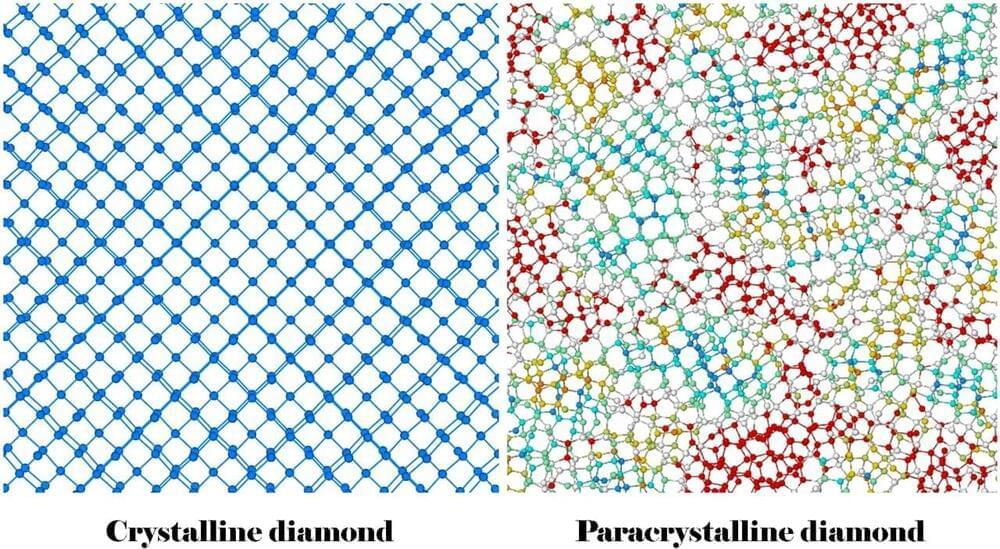A team of researchers from China, Germany and the U.S. has developed a way to create a less fragile diamond. In their paper published in the journal Nature, the group describes their approach to creating a paracrystalline diamond and possible uses for it.
Prior research has shown that diamond is the hardest known material but it is also fragile—despite their hardness, diamonds can be easily cut or even smashed. This is because of their ordered atomic structure. Scientists have tried for years to synthesize diamonds that retain their hardness but are less fragile. The team has now come close to achieving that goal.
Currently, the way to create diamonds is to place a carbon-based material in a vice-like device where it is heated to very high temperatures while it is squeezed very hard. In this new effort, the researchers have used the same approach to create a less ordered type of diamond but have added a new twist—the carbon-based material was a batch of fullerenes, also known as buckyballs (carbon atoms arranged in a hollow spherical shape). They heated the material to between 900 and 1,300 °C at pressures of 27 to 30 gigapascals. Notably, the pressure exerted was much lower than is used to make commercial diamonds. During processing, the spheres were forced to collapse, and they formed into transparent paracrystalline diamonds which could be extracted at room temperature.
